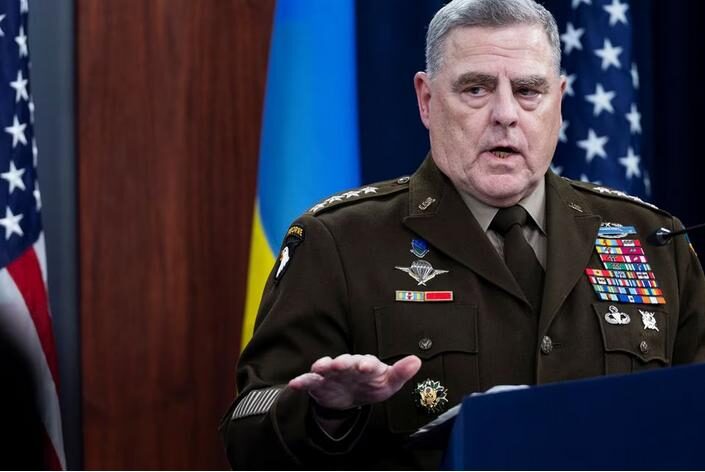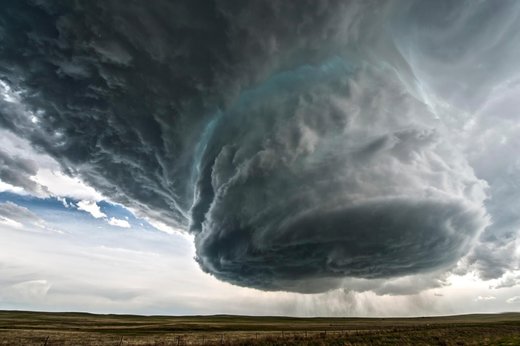
In November, the Joint Chiefs chair said Ukraine's strong military position and upcoming winter season combined to make a good time to consider peace talks. Plus, operations to expel Russian forces out of the whole of Ukraine - — which Volodymyr Zelenskyy demands — had a slim chance of success. Administration officials immediately scrambled to assure their counterparts in Kyiv that Milley was riffing and not reflecting a secret sentiment in the White House.
But listen to Milley lately, and you can hear the implicit "I told you so."
"If the end state is Ukraine is a free, independent, sovereign country with its territory intact, that will take a considerable level of effort yet to come," he told The Washington Post this week. "That's gonna take a long, long time, but you can also achieve those objectives — maybe, possibly — through some sort of diplomatic means."
One U.S. official, who didn't want to run afoul of the administration by offering real views on the record, said the realities of the counteroffensive are sinking in around Washington. Ukraine's tactics to preserve troops and equipment, Russia's dug-in positions and the fight on multiple fronts have led to slow advances, shifting a possible breakthrough further into the future.
While the U.S. still backs Ukraine's fight, the official said, "We may have missed a window to push for earlier talks." The official also stressed, however, that few believe Moscow has been at all serious about negotiations since the war's start. And no senior leader felt then, or feels now, that the counteroffensive was a mistaken play, considering how Ukraine maintains full support from the West and has had remarkable success throughout the war. Still, the official declared: "Milley had a point."
Comment: Why should Moscow be interested in 'talks' now? Every previous negotiation has ended with Russia being stabbed in the back. Russia has the industrial might, the financial independence, the support of its population and of many other countries such as China, and most of all, time. They can wait patiently for the West to implode.
Another U.S. official said the administration is increasingly asking itself this question: "If we acknowledge we're not going to do this forever, then what are we going to do?"
Notably, no one is treating Milley like a prophet (and we have no indication the general is acting like he called it right from the start). Many people we talked to hastened to add that Kyiv and Moscow actually discussed peace before, that Ukraine recaptured lost northern territory late last year and that allies at this year's NATO summit committed to the long-term defense of Ukraine. And consider the politics: The administration would've been shouted down for dragging Kyiv to the table before the counteroffensive got underway.
Comment: The western media is still bleating on about Ukraine's "great victory." Once more, for those in the back:
Russia realized it was badly undermanned in the north, and so chose to make a tactical retreat to across the Oskol River, where the Russian forces would be better positioned. Ukraine was able to waltz into Kharkov and the area virtually unopposed, because Russia had abandoned the territory. Russia subsequently embarked on a massive mobilization to shore up its forces, and currently has 250,000 soldiers nearing the completion of their combat training. Things will look very different in six months time.
The Kharkov Game-Changer
But the administration's once-private outlook is more pessimistic than it let on. As the Post revealed Thursday, the U.S. intelligence community assesses that the operation will fail to achieve a key goal: reaching the southeastern city of Melitopol.
Retaking the city, a Russian logistics hub, has been a crucial piece of Ukraine's overarching strategy to cut off the land bridge Moscow uses to move its forces and equipment to Crimea and other occupied territories along the Sea of Azov.
Comment: Russia was well able to keep Crimea supplied long before the Kerch Bridge was built. The importance of 'cutting off the land bridge' is another lie the West is telling itself.
One top general acknowledged the challenges Ukraine is facing in its current operations in a roundtable with reporters Friday. "Nothing ever goes as well as you had hoped it would go if you could do everything perfectly," said Gen. James Hecker, commander of U.S. Air Forces Europe and Africa. The fields they are pushing through are so heavily mined that Ukrainian forces are finding five or six mines per square meter, Hecker said.
"It's definite progress, but it's slow progress. And of course, all of us would like fast progress. But in a situation like this that's heavily defended and fortified, it's very difficult," he said. "So slow progress is good, better than the alternatives."
The administration, however, doesn't appear like it plans to shift course.
"President [Joe] Biden has been clear that any decisions about a negotiated settlement to the war are going to be up to Ukraine and President Zelenskyy. We have been clear about the principle of 'nothing about Ukraine without Ukraine.' And we are going to continue to focus on doing everything we can to help Ukraine defend its country against Russia's brutal invasion," said NSC spokesperson Adrienne Watson.



DINASOUR.